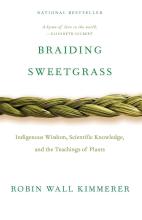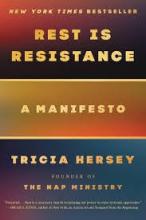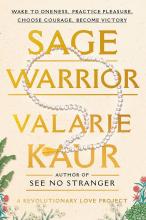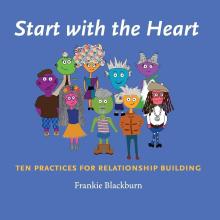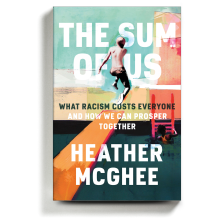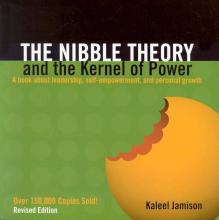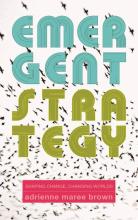After our first decade, we embarked on a journey of reflection, recommitment, and reimagining. Not surprisingly, we sought out wisdom from people also on the journey. We did a lot of reading that challenged, inspired, and shaped our thinking. We want to share these seven books with you, along with a favorite quote to pique your interest.
Braiding Sweetgrass
“The way of the Three Sisters reminds me of one of the basic teachings of our people. The most important thing each of us can know is our unique gift and how to use it in the world. Individuality is cherished and nurtured because, in order for the whole to flourish, each of us has to be strong in who we are and carry our gifts with conviction, so they can be shared with others. Being among the sisters provides a visible manifestation of what a community can become when its members understand and share their gifts. In reciprocity, we fill our spirits as well as our bellies.” (Robin Wall Kimmerer, Braiding Sweetgrass, p. 134).
Rest is Resistance: A Manifesto
“We imagine by being in community. We imagine by receiving and offering radical care. We imagine by embracing and running toward our interconnectedness. Individualism is leading us to the path of exhaustion and death. Community care will save us, and we can dream up all the ways to manifest and strategize the care of communities.” (Tricia Hersey, Rest is Resistance, p. 188).
Sage Warrior
“The sage is someone who loves deeply. You cultivate wonder for others and the earth and wake to Oneness. You befriend the body—parts of the world, and parts of yourself. You practice pleasure through music, meditation, movement, and more as channels for awakening. You build sovereign space where you can find refuge and rest in wisdom within you.
The warrior is someone who fights for humanity, including your own. You access your agency and activate power. In the face of injustice, you harness rage and refuse to surrender your humanity. You join others to grieve together and alchemize pain into energy and action. You choose courage in the face of crisis. In doing so, you become victory. You embrace rebirth.” (Valarie Kaur, Sage Warrior, p. xxi).
Start with the Heart
“I believe that we have no choice but to figure out how to honor, respect, and know ‘the others’ in our midst. Our world is on the edge of destruction precisely because we are afraid to build the bridges necessary to heal, transform, connect.” (Frankie Blackburn, Start with the Heart, p. 4).
The Sum of Us
“It turns out that the diversity that is causing an often-unconscious racial panic in so many white Americans is actually our biggest asset. The research has borne this out in education, jurisprudence, business, and the economy. Put simply, we need each other. Our differences have the potential to make us stronger, smarter, more creative, and fairer. Once we abandon the false idea of zero-sum competition, the benefits of diversity become evident, from the classroom to the courtroom to the boardroom.” (Heather McGhee, The Sum of Us, p. 281).
The Nibble Theory and the Kernel of Power
“For my part, I do believe that I have come to this world for a mission—for some reason, for some specific reason. I am on this Earth for a reason. And that doesn’t mean that I have to bring peace to the Middle East—although I yearn to do so. I don’t have to be Madame Curie. Or Albert Schweitzer. But I can do certain things to touch people on this Earth—in this lifetime, in my life. I can make myself grow in such a way that it affects both me and others. I am worthwhile. And so, I believe, are you.” (Kaleel Jamison, The Nibble Theory and the Kernel of Power, p. 45).
Emergent Strategy
“Humans are unique because we compete when it isn’t necessary. We could reason our way to more sustainable processes, but we use our intelligence to outsmart each other. We compete for fun, for ego. The idea of interdependence is that we can meet each other’s needs in a variety of ways, that we can truly lean on others and they can lean on us. It means we have to decentralize our idea of where solutions and decisions happen, where ideas come from” (Adrienne Maree Brown, Emergent Strategy, p. 87).


